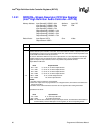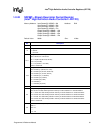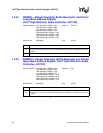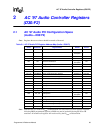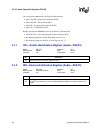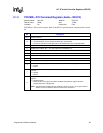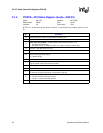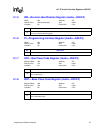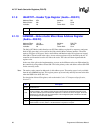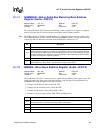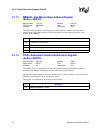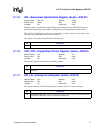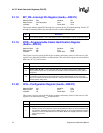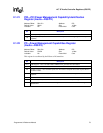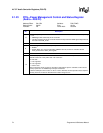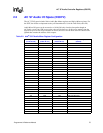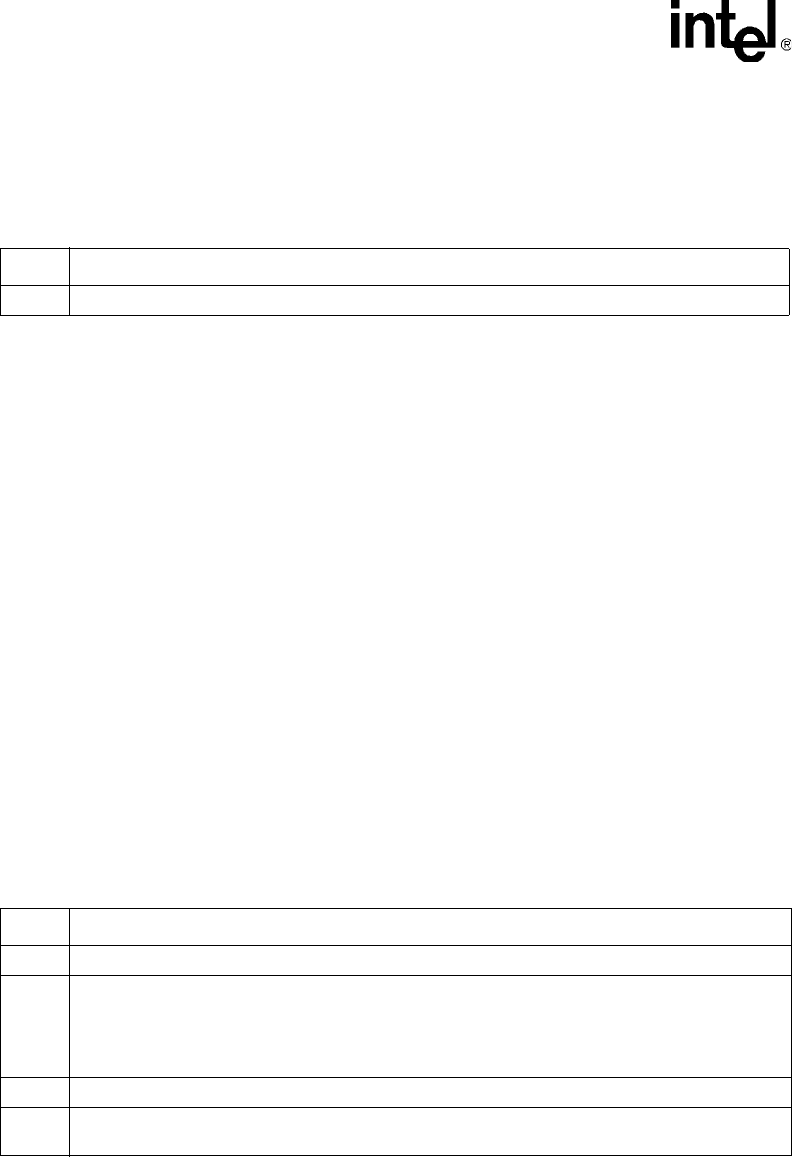
68 Programmer’s Reference Manual
AC ’97 Audio Controller Registers (D30:F2)
2.1.9 HEADTYP—Header Type Register (Audio—D30:F2)
Address Offset: 0Eh Attribute: RO
Default Value: 00h Size: 8 bits
Lockable: No Power Well: Core
2.1.10 NAMBAR—Native Audio Mixer Base Address Register
(Audio—D30:F2)
Address Offset: 10–13h Attribute: R/W, RO
Default Value: 00000001h Size: 32 bits
Lockable: No Power Well: Core
The Native PCI Mode Audio function uses PCI Base Address register #1 to request a contiguous
block of I/O space that is to be used for the Native Audio Mixer software interface. The mixer
requires 256 bytes of I/O space. Native Audio Mixer and Modem codec I/O registers are located
from 00h to 7Fh and reside in the codec. Access to these registers will be decoded by the AC '97
controller and forwarded over the AC-link to the codec. The codec will then respond with the
register value.
In the case of the split codec implementation, accesses to the different codecs are differentiated by
the controller by using address offsets 00h
–7Fh for the primary codec and address offsets 80h–FEh
for the secondary codec.
Note: The tertiary codec cannot be addressed via this address space. The tertiary space is only available
from the new MMBAR register. This register powers up as read only and only becomes write-able
when the IOSE bit in offset 41h is set.
For description of these I/O registers, refer to the Audio Codec ‘97 Component Specification,
Version 2.3.
Bit Description
7:0 Header Type — RO. Hardwired to 00h.
Bit Description
31:16 Hardwired to 0’s.
15:8
Base Address — R/W. These bits are used in the I/O space decode of the Native Audio Mixer
interface registers. The number of upper bits that a device actually implements depends on how
much of the address space the device will respond to. For the AC ‘97 mixer, the upper 16 bits are
hardwired to 0, while bits 15:8 are programmable. This configuration yields a maximum I/O block
size of 256 bytes for this base address.
7:1 Reserved. Read as 0s.
0
Resource Type Indicator (RTE) — RO. This bit defaults to 0 and changes to 1 if the IOSE bit is set
(D30:F2:Offset 41h, bit 0). When 1, this bit indicates a request for I/O space.



